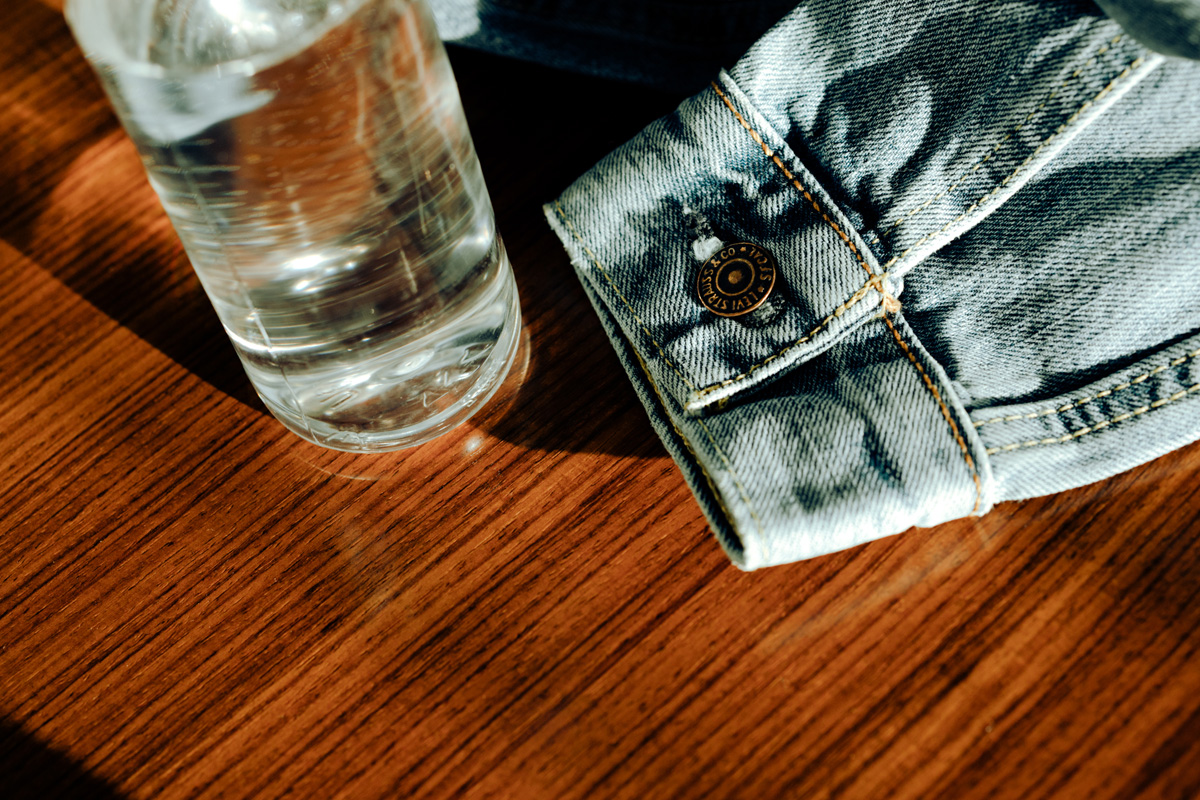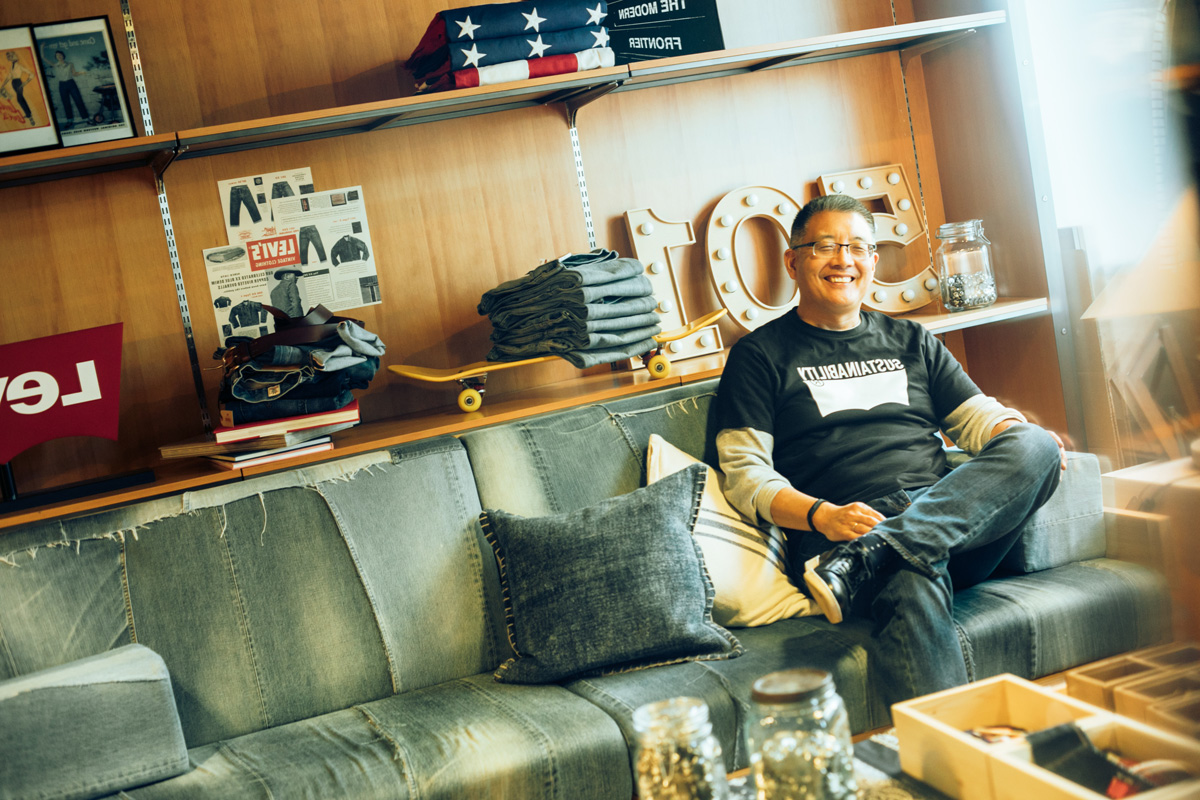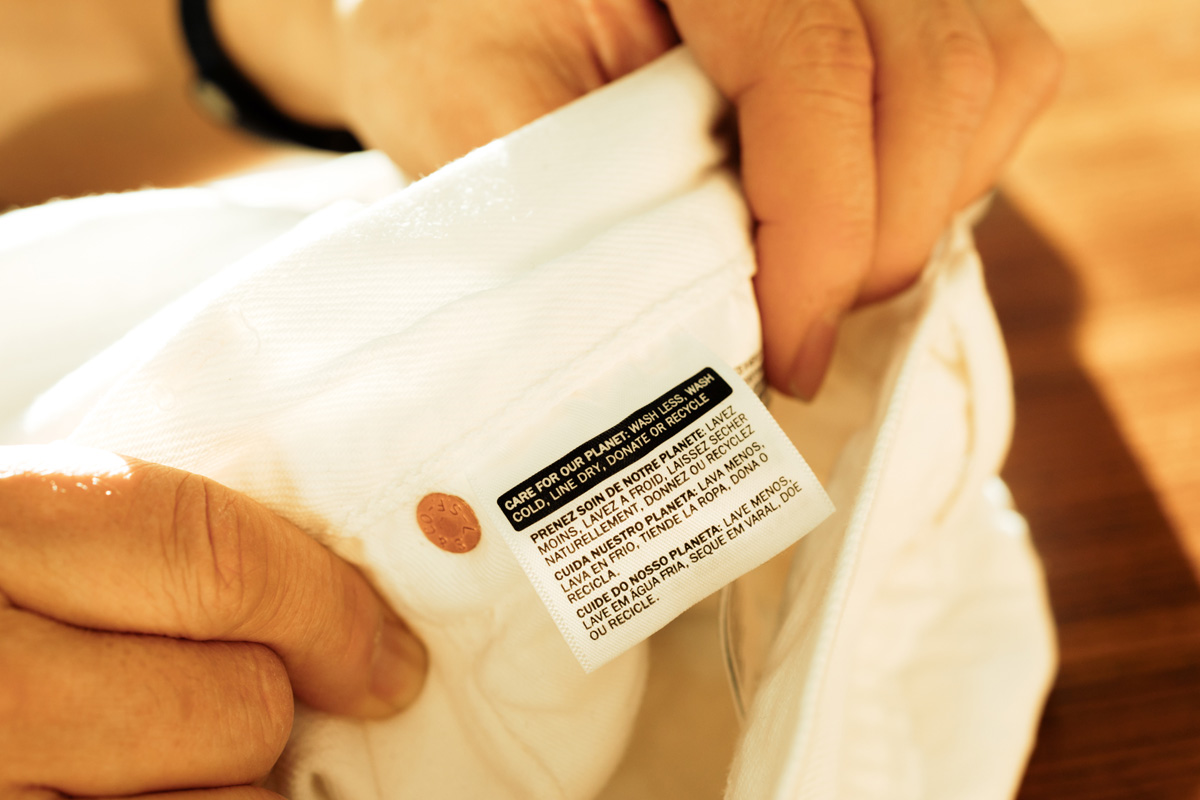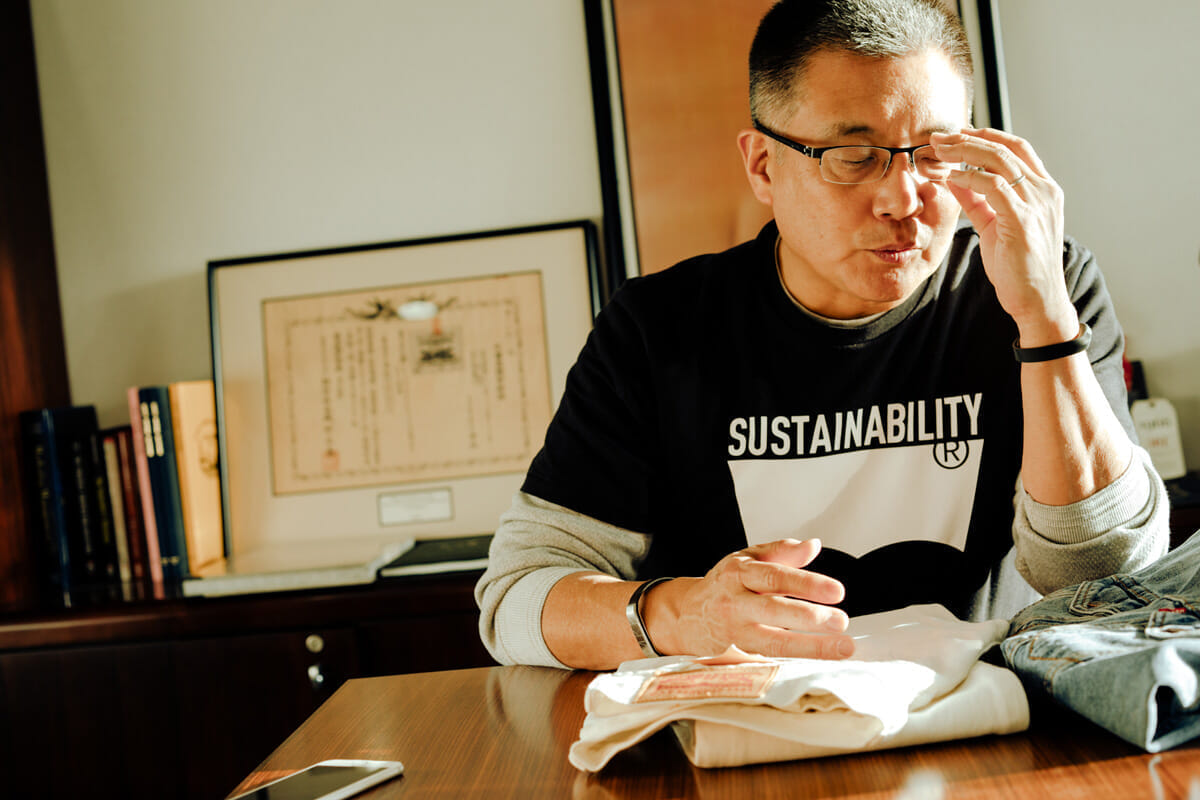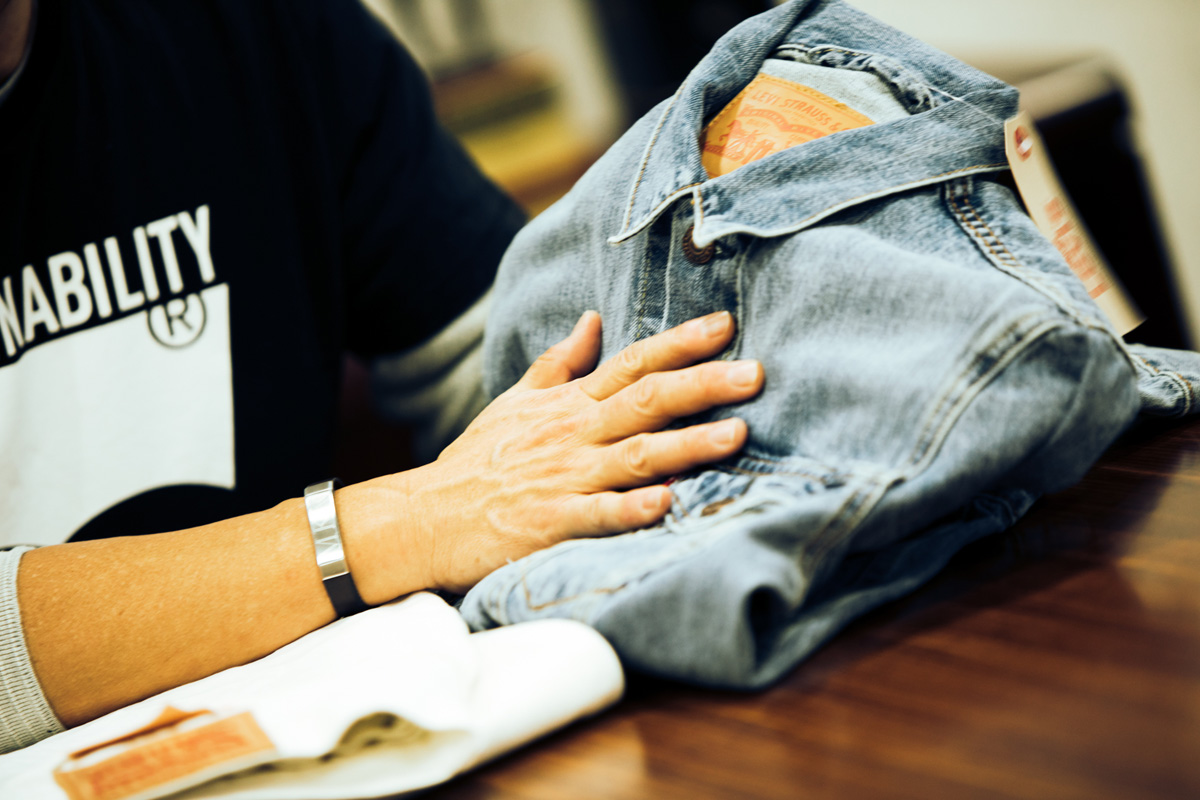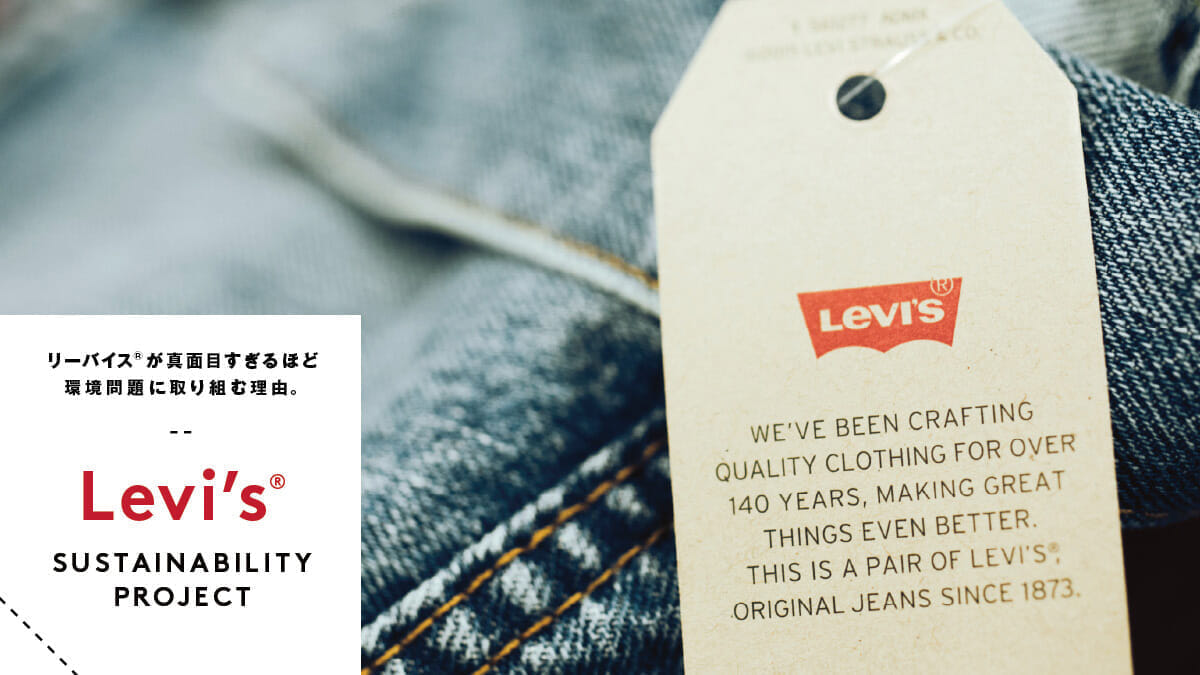
Levi's® Sustainability Project
Why Levi's® is too serious about the environment.
Levi's®, which boasts an unexplainable presence as a denim brand and has created numerous masterpieces, including the 501®, has established a "Sustainability Department" as part of its CSR efforts. The company has focused on water-saving processing technology, saving one billion liters of water. The company also has a project to collect used clothing, regardless of brand, and distribute discount coupons in return. What kind of future is this global apparel company trying to achieve by addressing environmental issues? We interviewed Michael Kobori, spokesperson for the company's sustainability division.
- Photo_Kaori Nishida
- Text_Satoru Kanai
- Edit_Hiroshi Yamamoto




